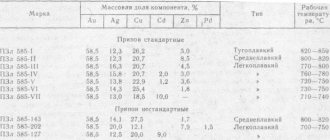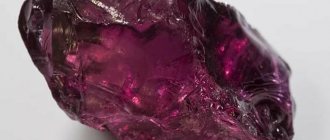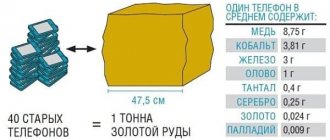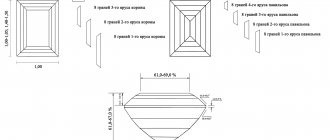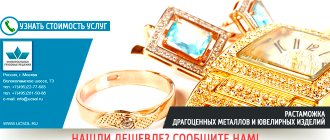1. Conducting a transaction related to precious metals, natural precious stones or pearls, in violation of the rules established by the legislation of the Russian Federation, as well as illegal storage, transportation or shipment of precious metals, natural precious stones or pearls in any form, condition, with the exception of jewelry and household products and scrap of such products, committed on a large scale - is punishable by forced labor for a term of up to five years or imprisonment for the same term with a fine in the amount of up to five hundred thousand rubles or in the amount of the wages or other income of the convicted person for a period of up to three years or without it.
2. The same acts committed by an organized group or a group of persons by prior conspiracy are punishable by forced labor for a term of up to five years or imprisonment for a term of up to seven years with a fine in the amount of up to one million rubles or in the amount of the wages or other income of the convicted person. for a period of up to five years or without it.
Commentary on Article 191 of the Criminal Code of the Russian Federation
1. Subject of the crime:
1) precious metals: gold, silver, platinum and platinum group metals (palladium, iridium, rhodium, ruthenium and osmium). Precious metals can be in any condition, form, including native and refined form, as well as in raw materials, alloys, semi-finished products, industrial products, chemical compounds, coins, scrap and industrial and consumer waste;
2) precious stones: natural diamonds, emeralds, rubies, sapphires and alexandrites;
3) natural pearls in raw (natural) and processed form;
4) unique amber formations.
The subject of the crime does not include jewelry, household products, or scrap of such products.
The absence of an assay mark on a product made of precious metals or a certificate for a cut stone does not turn it into the subject of a crime. Uncut stones that have undergone preliminary mechanical processing cannot be classified as jewelry.
2. Criminal liability under the commented article arises for any transactions with precious stones and precious metals carried out in violation of the legislation of the Russian Federation on a large scale. The latter may be due to the illegality of their extraction and production.
Transactions concluded between individuals are considered illegal. Purchasing organizations and individual entrepreneurs are prohibited from buying rough diamonds, unprocessed natural pearls, precious stones, etc. Mined and produced precious metals (with the exception of nuggets), after the necessary processing, must be sent for refining to organizations included in the list approved by the Government of the Russian Federation. The procedure for carrying out transactions with mineral raw materials containing precious metals before refining is determined by the Government of the Russian Federation.
3. Illegal storage, transportation, forwarding will occur in the case when these items were illegally obtained or produced, stolen, obtained as a result of committing any other crime, or acquired as a result of an illegal transaction.
4. Theft of precious metals or precious stones with the subsequent conclusion of illegal transactions requires qualification under a set of crimes - Art. Art. 158 - 162 and 191 of the Criminal Code.
5. Illegal transportation or shipment of precious stones and metals across the customs border of the Russian Federation should be qualified according to the totality of Art. Art. 188 and 191 of the Criminal Code.
6. Illegal production by citizens of jewelry, dentures and other household products from precious metals and precious stones belonging to the manufacturer or customer, which are currency values, production of these items from jewelry and other household products consisting of precious metals and precious stones, as well as scrap of such products , cannot be considered as illegal trafficking in precious metals and stones.
Such actions, if there are appropriate signs, must be qualified under Art. 171 CC.
Predators or prospectors?
Predators are people who mine gold without licenses or permits. The word was known even in pre-revolutionary Russia, since even in those days not everyone could obtain a license.
The predator's equipment has changed little over the century. These are a pick, a shovel, a tray, primitive devices for searching for gold. Few people use expensive modern means, as they may be taken away. And not only law enforcement agencies, but also crime.
All predators dream of getting rich, but only a few succeed. Even if a black miner attacked a gold-bearing site, selling what he found is a big problem. Most often, the predator himself becomes a victim of crime or envious fellow miners.
On the Internet you can easily find a lot of stories about successful miners who received prison sentences for their efforts, and whose gold was confiscated. A man in Buryatia washed gold all summer and washed about three kilograms. He was caught on the highway by FSB officers. Most likely, the lucky predator was betrayed by his fellow prospectors. The man was given a two-year suspended sentence and his gold was confiscated.
Mining precious metals using a tray is hard work. But he is illegal in Russia. Many miners die at the hands of bandits or in the taiga, left without help.
People do not become predators because they have a good life. Many people are driven to search not by a thirst for adventure, but by unemployment, a natural desire to feed their family.
Legalization of alluvial gold mining could solve a lot of problems.
- eliminate unemployment in many localities;
- attract people to the regions of Siberia and the Far East, where there is now a massive outflow of population;
- increase the production of precious metals in the country;
- fill the budget by donating legal gold to the population.
The artisanal mining method is very promising in many regions of Russia. Prospectors often find new deposits; such precedents have often happened in other countries. Many residents of Buryatia and the Magadan region are ready to look for gold in non-industrial placers, but only one factor holds them back - their activity will be considered illegal.
The best option for legalizing illegal gold mining is to sell licenses, as in Australia. A license to search and mine gold here can be purchased online for $30. Many tourists are attracted by this simple scheme, and they go to the fifth continent in search of gold. Australian statistics are modestly silent on how much each tourist finds on average, but any discovery of a nugget becomes the property of the press. Due to this, tourism in Australia is thriving.
Artisanal gold mining is illegal in many countries. Millions of people in Africa and Asia wash sand every day or climb into adits and mines at their own peril and risk. In Mongolia and Kazakhstan, black mining is widespread, but few people are punished for their activities. In Peru, a quarter of gold is mined illegally.
Illegal gold mining is rampant in South Africa and Ghana. According to some reports, about a million ounces of gold are mined illegally in South Africa alone. But miners cannot sell gold at normal prices in their country and go to Zimbabwe. Gold miners earn no more than five dollars a day.
Illegal business does not bring income to diggers and the state in any country in the world. Developing countries that are interested in developing gold mining are relaxing laws and encouraging gold mining. In many civilized countries, they do not neglect artisanal mining of precious metals and sell licenses without red tape and delays.
Responsibility for illegal trafficking
- Dgarmetalov. Depends on the value of the jewelry that became the object of the crime. The maximum punishment provided for by the Criminal Code is 5 years of compulsory labor or imprisonment for individuals, and up to seven years with a fine of up to a million rubles for a group of persons (two people are also considered a group).
- Stones. Responsibility for the turnover of stones is provided to the same extent. The likelihood of receiving the maximum sentence depends on the value of the stones with which the illegal operation was carried out.
- Pearls. Pearls are listed separately among precious stones, but responsibility for their turnover is the same as for other stones and metals. If pearls are not part of jewelry or a household product, they are the subject of a crime.
Why does the state need this?
Any country pays main attention to two types of security: state and economic. Now, however, they have been joined by information and environmental ones, but the palm still belongs to a set of measures to protect the integrity and performance of these two systems.
The national economy ensures state security, creating the basis for the financial support of all state institutions. The budget of any country consists primarily of taxes, payments to the treasury, customs duties, and profits of state enterprises.
It would seem that the main thing is that a certain share of the profits from the exchange of goods constantly flows into the treasury. And it doesn’t matter what exactly is being sold and bought: gold in natural bullion or gold jewelry. If purchase and sale procedures are carried out legally, then the state will only get richer from this.
But the point is that the term “precious” carries a value judgment. There is an official list of metals and natural stones that fall into the category of precious and semi-precious. Pearls, of course, are not stones or metals, but they are natural formations equated to precious stones and metals. This means that an object that has produced a mollusk in its shell is under government control.
This attention is not due to the natural value of gold, silver, tin, diamonds, emeralds, etc., but to their market valuation. It is common in society to pay significant amounts of money for a piece of yellow metal or green stone. In the global and national economy, such a willingness to constantly pay a lot of money for certain items qualifies as a sign of a means of payment.
In fact, precious metals and stones have the status of international currency. At different times in Russia, furs and wood also had this status. Now economic security is also assessed in oil and gas reserves.
Thus, those natural materials (minerals, elements of wildlife, etc.) that can be used in the world economy as a universal interstate means of payment form the basis of the country’s security. For this reason, their circulation is controlled by the state.
It is this idea that is stated in Art. 191 of the Criminal Code of the Russian Federation. Uncontrolled circulation of precious minerals in Russia and abroad after their export can undermine the stability of the international market. This threatens unregulated price hikes, which directly affects exchange rates and the value of money.
How is the investigation into illegal trafficking of precious metals going?
The investigation begins with the fact of contacting law enforcement agencies. This is done by a witness or victim of the actions of attackers. If no one’s interests have been infringed or no one knows about the transaction or storage, then there are no grounds for initiating a criminal case, and the investigation will not begin.
The second thing that is necessary for the investigation is the subject of the crime, i.e. precious stones or metals. If a deal was made, then they must be somewhere, and discovering their whereabouts is a key point in the investigation. When the subject of a crime is discovered, it is removed from the storage location in compliance with the appropriate procedures. Then the materials are sent for examination, and only after receiving its results can the investigative authorities demand documents about the transaction.
The last stage is determining the authenticity and legality of the documents themselves. If they do not comply with the rules established by law, then the transaction is considered illegal, and its participants are considered criminals.
At any of these stages, the case may be closed due to the inability to move to the next stage of the investigation:
- At the application stage - if no one contacted the investigative authorities or the applicant refused the application;
- At the stage of searching for jewelry - if they were not found or were seized without paperwork;
- At the examination stage - if the materials were recognized as not subject to special accounting, namely: They are not jewelry;
- Not suitable for jewelry processing;
- Artificially grown;
In any case, the wording would be to close the case for lack of corpus delicti.
Severe punishment
Our legislation has not remained favorable to predators; a person faces an article for illegal mining of precious metals. But the liability will not be criminal, but administrative, unless, of course, the prospector managed to find and mine several kilograms of gold.
So, what to expect from the punishment:
- Article 19.14 of the Code of Administrative Offenses of the Russian Federation provides for administrative liability for the extraction, purchase, storage, sale and even use of illegally mined metal. A person faces a fine of three to five thousand rubles. Property will not be confiscated, nor will the means of production, but the extracted gold will certainly become the property of the state. In some cases, a citizen faces a suspended sentence of several years.
- If the miner managed to mine Au for more than 1 million rubles (the amount is determined in accordance with the exchange rate of the precious metal), then it will not be possible to hide from criminal liability. In such a situation, the punishment will be stricter.
- The punishment will be serious even if the illegal activity was carried out on someone else’s territory. That is, a prospector worked in a mine that has an owner. His actions can be regarded as invasion of private property, encroachment on someone else's property and theft. However, it all depends on the claims of the mine owner, but the damage will definitely have to be compensated.
Mostly, one manages to get away with a fine and a warning. Such punishment stops few people, because if the outcome is successful, there is a chance to find untold riches and not need anything for the rest of your life.



